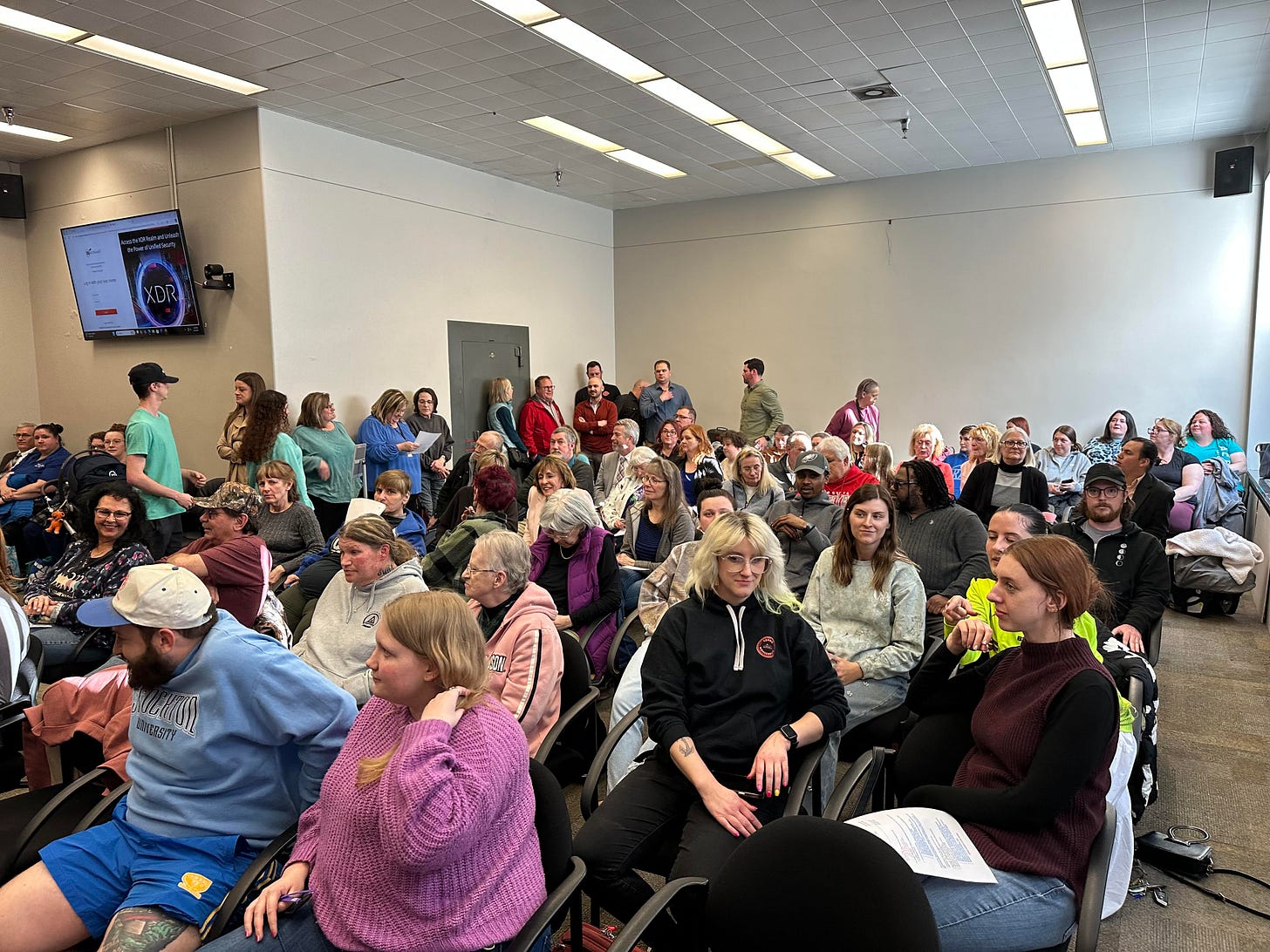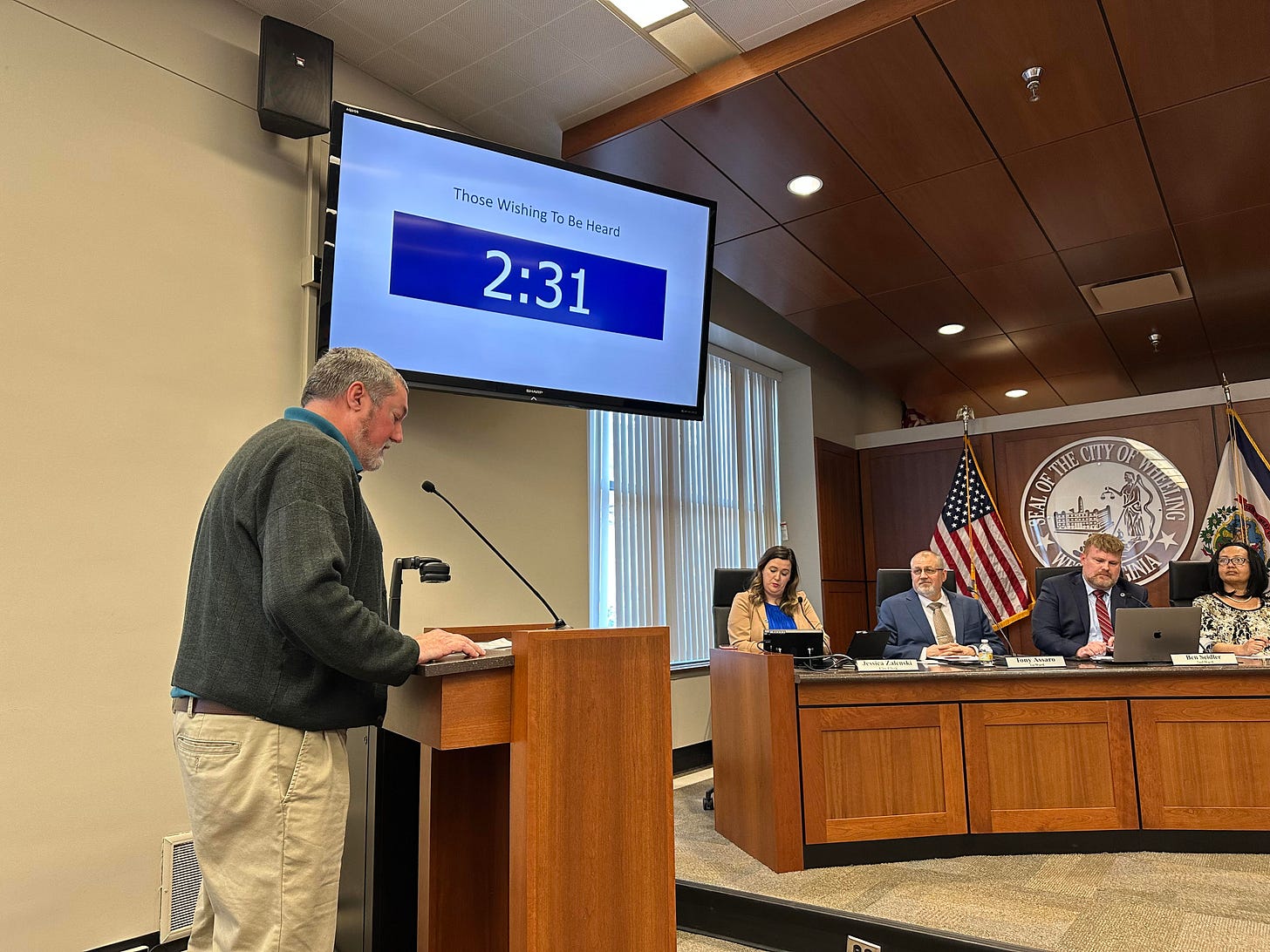Feline fanatics pack council chambers ahead of cat ordinance vote
Opponents to a proposal to ban the intentional feeding of stray cats voiced their opinions Tuesday urging councilors to reconsider. They did just that, tabling the ordinance for now.
WHEELING – Typically, a public hearing is a bureaucratic necessity that receives little, if any, attention. A public hearing held Tuesday, April 1 was anything but typical.

Dozens of people packed council chambers ahead of a vote on a proposed amendment to the city’s code that would have banned the intentional feeding of stray cats. If adopted, the legislation would have levied significant fines on repeat offenders.
Before the public had a chance to speak, Councilor Ben Seidler, who has been the most vocal about the ordinance, said he would move to table the legislation.
“What we were trying to address is a huge litter problem in our neighborhoods,” Seidler said, adding he and members of council were following the advice of the county’s health department and prosecutor’s office. He described the ordinance and its unintended impact on private property as “short-sighted on my behalf.”
Mayor Denny Magruder advised those signed up to speak that the ordinance would be tabled, and City Manager Robert Herron explained that another public hearing would take place in the future. Undeterred, a majority of the twelve people who wished to speak did so.
Michael Gertz of the First Ward asked councilors to reject the amendment.
“Feeding feral and stray cats does not lead to an increase in vermin such as mice and rats,” Gertz said, citing an example from Disneyland where some 200 stray cats are cared for to keep rodent populations low. “Rather, any increase in the rodent population…is more likely due to an increase in the accumulation of trash and abandoned houses in the area.”
Gertz said issues with litter could be better solved by enforcing current law.
Julia Coraccio said her goal in speaking was to emphasize solutions. “The West Virginia Department of Agriculture has a $1 million dollar fund for [Trap-Neuter-Release],” Coraccio said.
The state Department of Agriculture’s West Virginia Spay Neuter Assistance Program seeks to reduce shelter populations, euthanasia rates and threats to public health and safety from rabies and other problems,” the department’s website reads. Stray animals are trapped, sterilized and released, eliminating their ability to reproduce.
Coraccio went on to express her concerns that federal and state budget cuts could lead to a worsening economic situation, potentially increasing the number of stray animals and an increase of the pet population at the county’s animal shelter.
Angela Phillips, a Marshall County resident, said she has rescued cats since 1998.
“When I found out about this issue yesterday, needless to say I was very upset,” Phillips said.
Phillips railed against the proposed fines in the ordinance, ranging from $300 on a first offense to $1000 on third and subsequent offense in a 12 month period. “[The fine] is totally ridiculous,” Phillips said. “$300 fine…that would neuter six male cats and three females.”
Briana Crippen, a Woodsdale resident, said the proposed ordinance could violate state and city law protecting animals against abuse. “It is unlawful for any person to intentionally, knowingly or recklessly mistreat an animal in a cruel manner, abandon an animal or withhold proper sustenance, including food and water,” Crippen said reading from state code.
Wheeling code contains similar language in its animal abuse legislation.
“I would argue that this [proposed ordinance] contradicts the state and city animal abuse laws considering that this admit would prohibit providing proper sustenance to feral or stray cats,” Crippen said.
After closing the public hearing, a motion to table the ordinance was offered by Seidler. Responding to the mayor asking if there was any discussion on the motion, one person in the audience shouted “thank you.”
With little fanfare, the motion to table was approved unanimously.
Where the ordinance goes from here is anyone’s guess. Councilors and city leaders will likely revisit the issue later, including carve-outs for the feeding of cats on private property.
When, or if, the ordinance returns for consideration, a public hearing will again be held.


